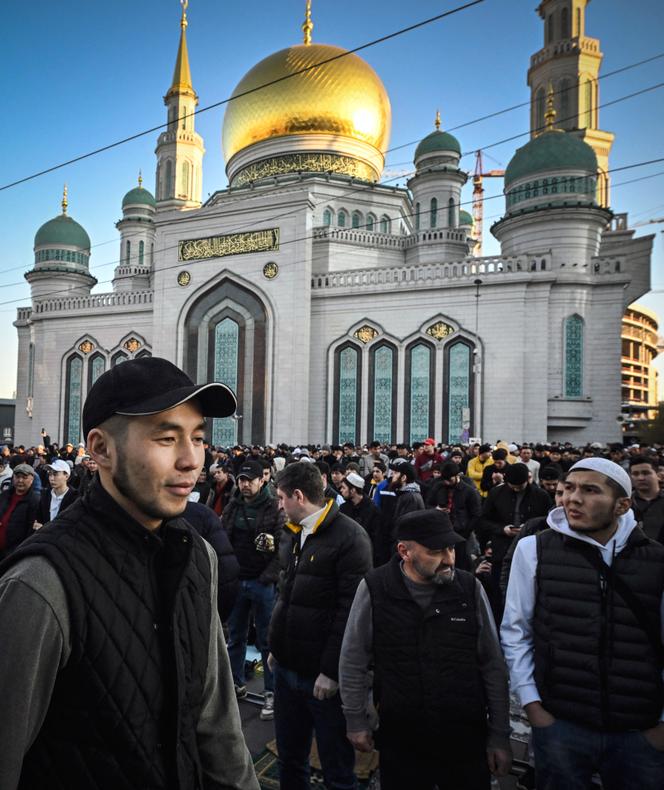


As if fearing an aftershock to the previous week's events, Ruslan (whose first name was changed) made an imperceptible detour, taking a few steps away from the metal doors behind which the Kotelniki mosque is sheltered. "In reality, there's not much you can do to protect yourself," admitted this 30-something originally from Kyrgyzstan, who lives just a few blocks away. "You could be stopped and arrested anywhere: in the metro, on the street, at your workplace, etc." The Friday, October 20 police raid in a residential suburb located an hour from the center of Moscow, as people were exiting after Muslim prayers, has left a lasting impression.
The mosque is, in fact, a modest prayer room tucked away on the upper floors of a low-income building. With its 70,000 inhabitants including a large immigrant population, Kotelniki has a handful of such mosques. The one on Pokrovsky Boulevard regularly makes the headlines: massive gatherings, complaints from local residents, regular police checks, etc. In July, riot police (OMON) entered the building, preceded by tear gas, to carry out identity checks.
The October 20 incident was less brutal. It wasn't linked to the ethnic and religious tensions that occasionally flare up in Moscow (according to disputed estimates by the Grand Mufti of Russia, the capital is home to 3 to 4 million Muslims). Rather, it was due to the consequences of the war in Ukraine: Short of manpower for the army, and anxious to avoid an unpopular new wave of military mobilization, Russian authorities are on the hunt for migrants.
"The riot police had prepared cordons outside the prayer room. They checked all those with a non-Slavic appearance and took them away in four buses" said Timur, one of the men detained that day. "We drove for an hour and a half to a military base. There we were told we had to sign a contract with the Ministry of Defense. As I'm the sole provider for a large family, they let me go with an obligation to report to the military office in a few days."
Around 250 people were taken away. According to information obtained by Le Monde, 16 had not returned a week later and had been enlisted into the army. Among them was Mamut Usseinov, the finalist in a famous TV talent show, who filmed every phase, from the arrest to the group's arrival directly in a military dormitory. It was thanks to his presence that the case received some publicity. "On the same day, in Kotelniki and the surrounding area alone, there were two other market raids," explained Valentina Chupik, a long-standing defender of migrants' rights who now lives in exile. "Since the summer, there have been dozens all over Russia."
You have 70% of this article left to read. The rest is for subscribers only.
